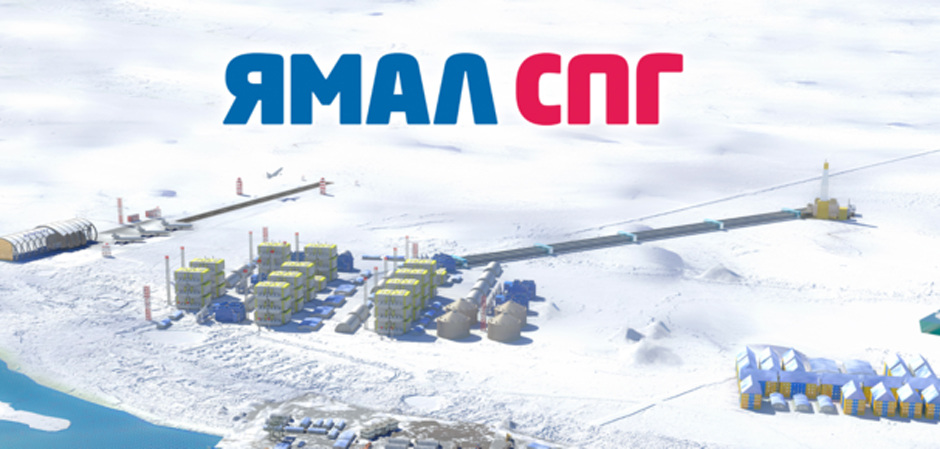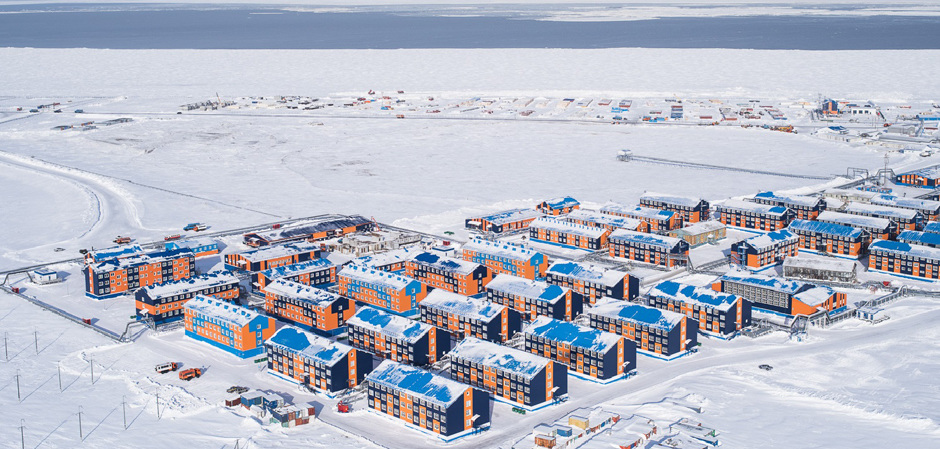Holofiber® tested in Yamal
Thermal protection with adaptive properties Holofiber was first tested in Yamal at temperatures from -20 °C to -46 °C, wind speeds up to 14 m/s and humidity up to 99%. Independent testing on volunteers took place within the framework of work on labor protection, industrial safety and environmental protection of JSC "Yamal LNG" and Programs of innovative implementations of the plant "Thermopol".

The main feature of thermo- and self-regulating heat-insulating non-woven fabric for insulated clothing Holofiber® THERMO An intelligent fiber system capable of adapting to changing conditions of the external and internal environment. The material contributes to the accumulation of adsorption heat in the layer of clothing due to the transformation of water vapor accumulated in the underclothing space, thus forming the most comfortable temperature and humidity environment between the layer of clothing and the human body.
Chief Technologist of plants «Thermopol» Elena Mezentseva, co-developer of the products Holofiber, explains that the novelty provides the conversion of kinetic energy of absorbed water vapor into thermal energy to maintain the temperature inside the clothing package, andHolofiber
Elena Mezentseva comments: "By self-regulation, developers understand a tangible compensating effect that allows them to maintain stable thermal comfort in clothing with a sharp change in environmental conditions (exit / entrance to/ from the room, sudden gusts of wind, precipitation). Under «thermal comfort » long-term preservation of a comfortable feeling of warmth without signs of hypothermia. The study of the physico-mechanical and operational parameters of the novelty was previously carried out in domestic and foreign laboratories, including on a thermal mannequin in a state of walking and perspiration. We have been developing and serially implementing materials for insulated clothing and not only for 15 years, and we are well aware that our technology represents a significant prospect for the market of building materials, upholstered furniture and mattresses, bedding, shoes, etc. Processes of heat loss and thermal insulation on macro objects (buildings, structures), pipelines, mechanisms, aggregates still require research and experimental implementations. And this is a real breakthrough!»

Self-regulating non-woven thermal insulation for workwear Holofiber® THERMO retains its operational properties for a long time and does not lose the main function of self-regulation after numerous washings and chemical cleaning, which is extremely important for workwear.
Earlier «Thermopol» in the project Holofiber® A1® presented heat-regulating packages with Thermal Control technology. Today they are used in the production of modern clothing in various segments.
The production introduction of Holofiber® THERMO before the serial release, an active discussion took place in the scientific community at international conferences Smartex (Ivanovo) and International symposia "Scientific and Production Partnership" (Ivanovo Moscow). Research, testing and innovation implementation by the employees of the plant "Thermopol" continues. The complex work involves Kosygin Russian State University, N.G. Chernyshevsky Saratov University, Ivanovo State Polytechnic University, Kazan National Technological University, leading domestic and foreign textile laboratories.
Photo: «Thermopol»